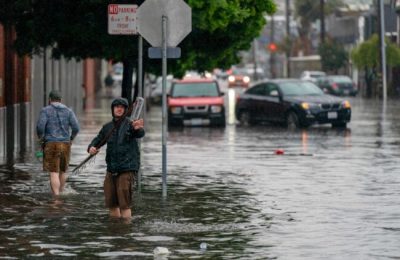The raging issue of a reasonable minimum wage for Nigerian workers has been a recurring stalemate for the Federal Government and the labour unions since the inception of President Bola Tinubu’s administration. KINGSLEY ALUMONA sampled the opinions of some Nigerians to enquire what they deemed fit to be the minimum wage. Their views:
Aina Olalekan
To avoid inflation and to consider people who are not government workers and pensioners the government cater for, I think N80,000 is okay for now. When the salaries of workers are increased, there would be an artificial increase in consumable and non-consumable items in the market. How would retirees and others meet up with the artificial increase of prices in the market? We all go to the same market to buy things. The government should not forget other citizens who are not government workers while increasing the minimum wage.

Matthew Ogunyinka
There are factors to consider before deciding on a minimum wage. They are the price of fuel per litre, the purchasing power of the naira in local and international markets, and the general price level. On the premise of the factors listed above, the minimum wage should not be less than $200 US dollars — which, in naira, is more than N200,000.

Etini Silas
I would recommend N100,000 as the minimum wage to workers. Instead of paying the proposed N615,000, the government should rather put measures in place, like providing CNG buses to reduce the costs of transportation, ensure adequate reduction in the prices of goods and services, and tackle insecurity. If the government pays workers the proposed N615,000, without prioritising these three factors, it would be an exercise in futility.
Ishoji Oroale
The minimum wage should be N300,000 for the following reasons: one, the increase in the prices of goods and services, such as transportation, housing, food, and education; two, the depreciation of the naira locally and internationally; three, the hike in electricity and fuel prices; and four, an increase in the cost health care — the cost of having good health care in Nigeria, with the present minimum wage, is not realistic. On these premises, there is a need for a new minimum wage, starting from N300,000.
Jabir Guri
Setting a minimum wage involves careful consideration of various economic factors, including inflation, cost of living, and the overall state of the economy. Considering the challenges Nigeria is facing, including the removal of fuel subsidies and inflation, I would recommend a minimum wage of N150,000. However, it is essential to balance this recommendation with considerations for businesses’ ability to pay such wages without causing job losses or economic instability.
Aliyu Haidar
The current N30,000 minimum wage is grossly inadequate to cover the basic needs of an average Nigerian. Considering the current economic conditions and the purchasing power of the naira, a minimum wage of at least N150,000 would be more realistic to reflect the true cost of living. This would have a positive impact on the economy, as increased purchasing power would boost consumer spending, drive economic growth, and reduce poverty. However, it’s important to consider the potential implications on businesses, especially small and medium-sized enterprises, to ensure that the increase is feasible and sustainable.
Alhassan Omale
The minimum wage in Nigeria should be adjusted to reflect current economic realities. A minimum wage of at least N150,000 is necessary to alleviate the severe economic hardship faced by many Nigerians. This increase would help workers afford necessities and improve their quality of life. The president must honour its campaign promise of a living wage, ensuring that salaries are in line with inflation and the cost of living. Implementing this change would provide much-needed relief and stability for Nigerian families.
Bode Ajayi
The issue of the minimum wage would be better discussed after the full operation of our refineries. The price of fuel plays a significant role in determining the minimum wage. I want to see a situation where the price of PMS could go down to N250. If this happens, we could have a robust discussion on what could be the minimum wage. Though I would not support inflation induced by fixing a minimum wage, workers need a living wage. The minimum wage should be fixed at the cost of four bags of rice. When the N30,000 minimum wage was passed into law back then, it could buy four bags of rice.
ALSO READ: Troops arrest notorious kidnapper, suspected informants in Oyo, Abuja







